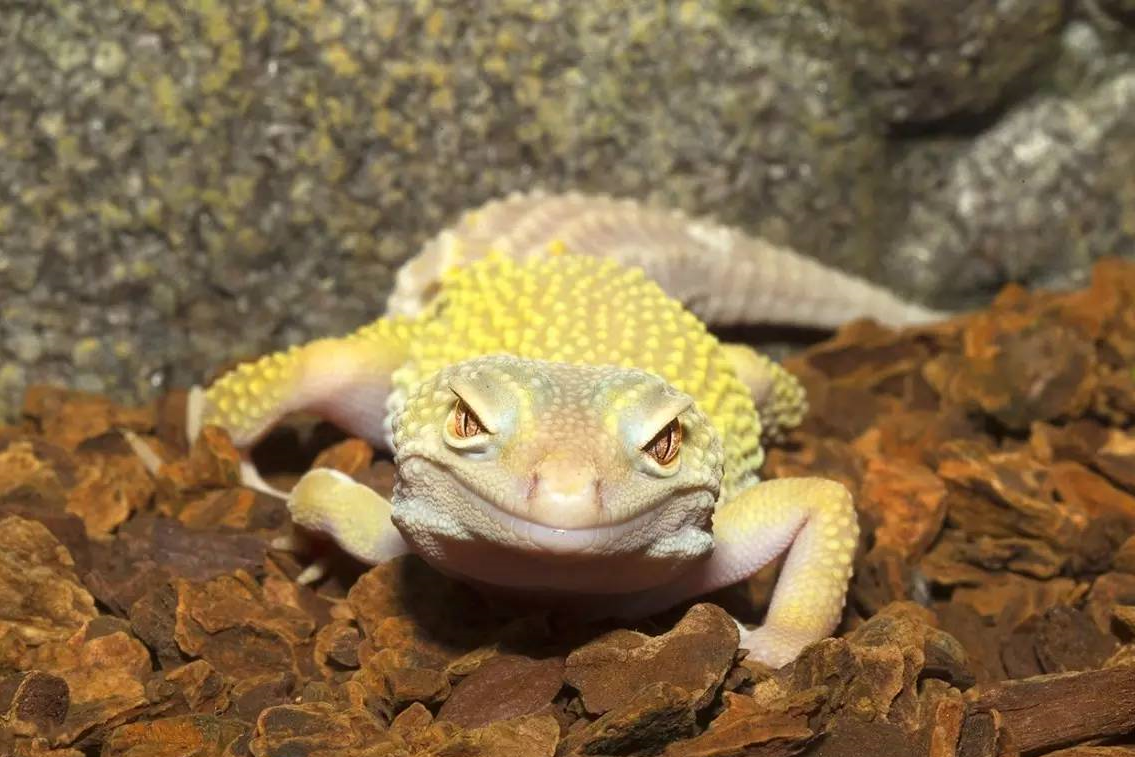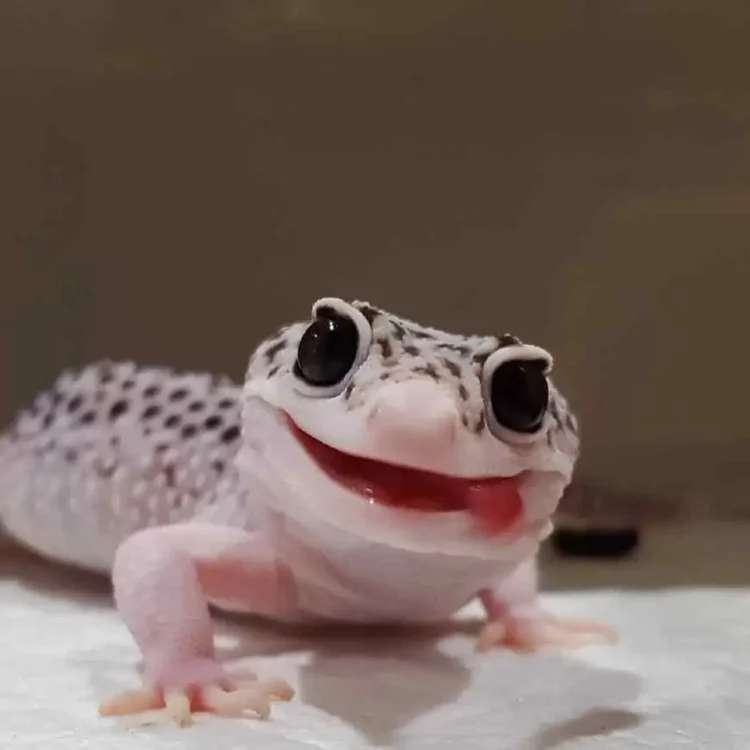Leopard geckos, with their stunning appearance, docile nature, and relatively low-maintenance care requirements, have become one of the most popular reptile pets worldwide. Whether you’re an experienced reptile keeper or a first-time pet owner, understanding the nuances of leopard gecko care is essential for providing a healthy and happy life for these fascinating creatures. In this comprehensive guide, we’ll explore everything you need to know about leopard geckos, from their physical characteristics to their habitat needs, diet, behavior, health care, and more.
1. Introduction to Leopard Geckos
Leopard geckos (Eublepharis macularius) are small, ground-dwelling reptiles native to the arid regions of Afghanistan, Pakistan, India, and parts of Iran. Unlike many other geckos, leopard geckos do not have adhesive toe pads, which makes them better suited for living on the ground. They are also unique for their ability to shed their tails as a defense mechanism, a feature that sets them apart from many other reptiles.
a. Why Are Leopard Geckos Popular as Pets?
- Gentle Temperament: Leopard geckos are known for their calm and friendly nature, making them an excellent choice for beginner reptile owners.
- Easy to Care For: They are relatively low-maintenance, requiring less complex habitat setups than many other reptiles.
- Long Lifespan: Leopard geckos can live for 10 to 20 years with proper care, providing a long-term companionship.
- Variety of Colors and Patterns: These geckos come in a wide range of color morphs, which makes them even more appealing to pet owners.
2. Physical Characteristics of Leopard Geckos
Understanding the physical traits of a leopard gecko is crucial for proper care. These traits are also part of what makes them such unique and beautiful pets.
a. Size and Growth
- Size: Adult leopard geckos typically reach a length of 7 to 10 inches, with females generally being smaller than males. Some larger morphs can grow slightly longer.
- Growth Rate: Leopard geckos grow rapidly in their first year, but their growth rate slows down significantly after reaching adulthood.
b. Skin and Color Morphs
Leopard geckos are named for their spotted appearance, resembling the spots of a leopard, but the diversity in their colors and patterns is vast. Some common color morphs include:
- Normal Wild Type: Yellow body with black spots.
- Albino: Lack of pigmentation, leading to a lighter appearance.
- Mack Snow: A pale, almost white gecko with darker markings.
- Tangerine: Geckos with more orange hues.
These morphs are the result of selective breeding and have become increasingly popular in the pet trade.
c. Tail
The tail is an essential feature of leopard geckos. They use it as a storage site for fat, and it also serves as a defense mechanism. If a gecko feels threatened, it can shed its tail to escape predators, a process known as autotomy. The tail will regenerate over time, but it may not look the same as the original.
3. Creating the Perfect Habitat for Your Leopard Gecko
One of the most critical aspects of leopard gecko care is setting up a suitable habitat. These reptiles have specific environmental requirements that need to be met to ensure their health and comfort.
a. Enclosure Size and Type
- Enclosure Size: A single adult leopard gecko requires a minimum enclosure size of 20 gallons (typically around 30 inches long). Larger enclosures, such as a 40-gallon tank, are preferable for larger geckos or for housing multiple geckos.
- Glass Terrariums: Most pet owners opt for glass terrariums, which allow for proper visibility and are easy to clean.
b. Substrate
Choosing the right substrate (bedding) is essential for your gecko’s health.
- Avoid Loose Substrate: Substrates like sand, while often visually appealing, can be dangerous because geckos may ingest it while hunting or digging, leading to impaction.
- Safe Substrate Options: Paper towels, reptile carpet, or ceramic tiles are safer and easier to clean.
c. Heating and Lighting
Leopard geckos are ectothermic, meaning they rely on external heat sources to regulate their body temperature.
- Heat Source: Use a heat mat or heat lamp to maintain a temperature gradient in the enclosure, with one side being warm (88-92°F) and the other side being cool (75-80°F). This allows the gecko to thermoregulate by moving between areas of different temperatures.
- Lighting: Unlike some reptiles, leopard geckos do not require UVB lighting, but they will benefit from a natural day-night cycle. Providing a 12-hour light/dark cycle is important for their well-being.
d. Humidity and Water
Leopard geckos come from arid climates, so their humidity levels need to be carefully controlled.
- Humidity: Keep humidity levels between 30-40%. Excess humidity can lead to respiratory issues, while too little can cause dehydration.
- Water Dish: Always provide fresh, clean water in a shallow dish. Change the water daily to ensure it remains free from contaminants.
e. Hiding Spots
Hedgehogs are nocturnal and prefer to have hiding spots during the day.
- Hide Boxes: Providing multiple hiding spots around the enclosure is essential for your gecko’s stress reduction. These can be made from cardboard boxes, clay pots, or commercially available reptile hides.

4. Diet and Nutrition for Leopard Geckos
Feeding your leopard gecko the right diet is crucial to its health. In the wild, they are insectivores, primarily feeding on crickets, mealworms, and other small invertebrates. In captivity, you need to mimic this diet as closely as possible.
a. Live Food
- Crickets: A staple in the diet of leopard geckos. They are high in protein and easy to find at pet stores.
- Mealworms: Another common food choice, but they should be fed in moderation due to their high-fat content.
- Other Insects: Dubia roaches, waxworms, and superworms are excellent alternatives, but should be offered occasionally to avoid overfeeding.
b. Feeding Frequency
- Juveniles: Young leopard geckos (less than a year old) should be fed daily.
- Adults: Adult geckos can be fed every other day or 3-4 times a week, depending on their size and activity level.
c. Supplementing the Diet
- Calcium: Sprinkle calcium powder on the insects every few feedings to prevent metabolic bone disease (MBD).
- Vitamins: A multivitamin supplement with vitamin D3 should be dusted on their food 1-2 times a week to promote healthy growth and skin.
d. Hydration
Always provide fresh water, but you can also mist your gecko’s enclosure lightly once or twice a week to help with hydration, especially if you notice signs of dehydration.
5. Handling and Socialization
Leopard geckos are typically shy at first but can become very tame with regular handling. While they are solitary creatures by nature, they tend to tolerate and even enjoy being handled once they are accustomed to their owners.
a. Getting Your Gecko Used to You
- Start Slowly: Begin by gently offering your hand and letting your gecko sniff it. Don’t try to grab them right away. Let them come to you on their own terms.
- Short Sessions: Initially, handle your gecko for short periods (5-10 minutes) and gradually increase the duration as they get more comfortable.
- Consistency: Handle your gecko regularly, but always respect its boundaries. If it seems stressed, let it rest.
b. Why Leopard Geckos Make Great Pets
Leopard geckos are often recommended for beginners because of their docile nature, low-maintenance care requirements, and interesting behaviors. They are not as demanding as some other reptiles and do not require constant attention or specialized lighting like certain species of lizards.
6. Health Care and Common Health Issues
Just like any pet, leopard geckos require proper health care. It’s important to monitor them for signs of illness and know how to provide veterinary care if necessary.
a. Signs of a Healthy Leopard Gecko
- Active and Alert: A healthy gecko should be alert, active, and move around its enclosure.
- Clear Eyes: Eyes should be clear, not sunken or cloudy.
- Healthy Appetite: A good appetite is a sign that your gecko is healthy.
- Proper Shedding: Regular shedding is normal, but incomplete or difficult shedding may indicate issues.
b. Common Health Issues
- Metabolic Bone Disease (MBD): Caused by a calcium deficiency, MBD is a common problem in captive leopard geckos that are not properly supplemented.
- Impaction: This occurs when the gecko eats substrate or has difficulty digesting food. It can lead to lethargy, lack of appetite, and bloating.
- Parasites: Wild-caught insects or poor hygiene can lead to parasitic infections.
c. Veterinary Care
If you notice any signs of illness or unusual behavior, it’s essential to seek veterinary care. A reptile-savvy veterinarian will be able to diagnose and treat your gecko properly.
7. Breeding Leopard Geckos
Breeding leopard geckos is an option for more advanced reptile enthusiasts. However, breeding requires careful attention to the health of both the male and female gecko, as well as the proper setup for egg incubation.
a. Breeding Process
- Conditioning: To prepare for breeding, ensure that both geckos are in optimal health.
- Mating: Once a female is gravid (pregnant), she will lay eggs in a secure hiding spot.
- Incubation: The eggs should be incubated at the proper temperature (80-90°F), with a humidity of 60-80%. Eggs usually hatch in 30-60 days.
8. Conclusion
Leopard geckos make wonderful pets due to their manageable size, docile temperament, and relatively simple care requirements. However, like all pets, they require proper attention, a suitable habitat, and a balanced diet to thrive. By providing the right environment, handling them gently, and monitoring their health, you can ensure that your leopard gecko enjoys a long, healthy life as a beloved companion. With this knowledge, you’re well-equipped to care for your new pet and enjoy the unique experience of keeping a leopard gecko.























































